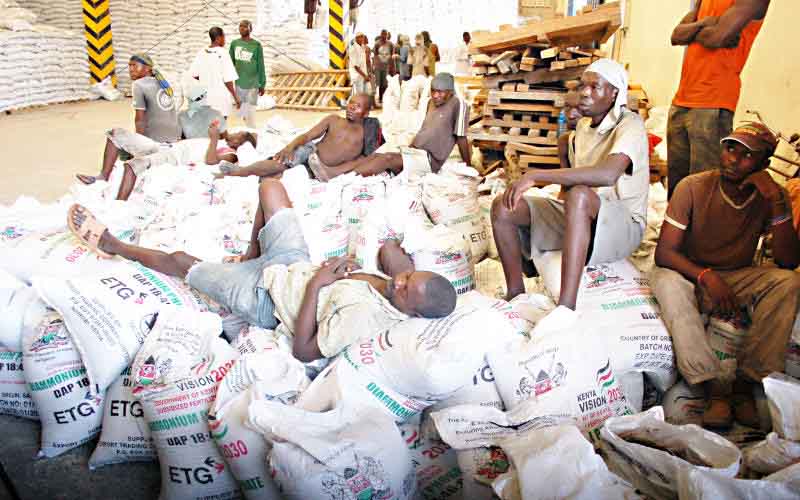×
The Standard e-Paper
Stay Informed, Even Offline

Workers take a break while off-loading fertilizer at a warehouse in Mombasa. [Omondi Onyango, Standard]
Benson Onyango, a 52-year-old labourer, pensively waits outside one of the big warehouses near the Port of Mombasa.







